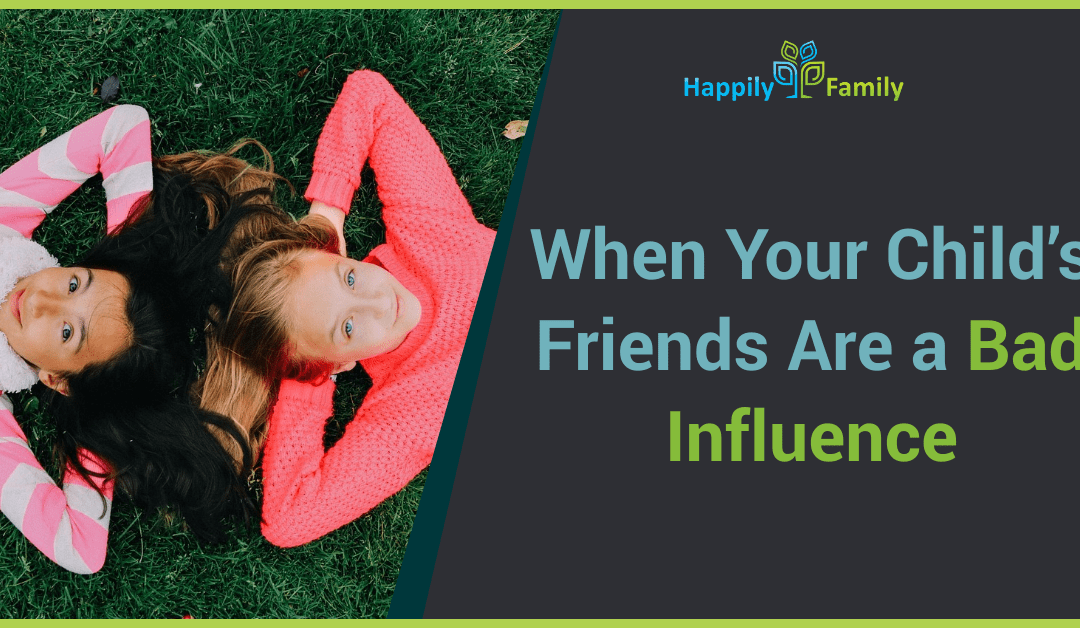A mom wrote to me and shared…
“My 7-year-old daughter is easily influenced by her peers. If her friends are doing well that's great. She follows directions and cooperates, but if her friends do something bad, she follows them and gets into trouble. Generally speaking, she is a well-behaved, happy girl who gets along with others and listens. What would be an effective way to show her that she can be strong, and that she can stand up for herself when a bad influence comes? I don't want to tell her who to be friends with, but how do I help her build her internal strength and be less influenced by her peers?”
Can you relate to this with your family? As an adult, can you relate to this in your life?
I can relate to this question on a personal level. I’m in the middle of a situation with some of my closest friends. They all want to do something that I think is a bad idea. They have good reasons for wanting to do this thing. And I have good reasons for not wanting it. Here I am, as a person in my late 40s, still trying to decide if I am going to stick to my principles, risk my friendships, and say no. Or if I’m going to give up my ideals, not rock the boat, and follow along with the crowd. So this topic is near and dear to my heart right now.
But bringing it back to parenting, the question remains…
How do we teach our kids when to go along with their friends and when to go against the crowd?
Before we talk about solutions, let’s recognize a few things about us as humans and our brains, and the importance of friends.
Some Peer Influence is Positive
I think you already see that there are some positive ways that your daughter is influenced by her friends. They help each other to cooperate and they make some healthy choices together. It sounds like the challenge for your child, is first to tell the difference between when she is being positively or negatively influenced by her friends and then second, to have the inner strength to go against her peers. Both of these tasks are important parts of human development that even as an adult I’m still sorting out.
I still ask myself:
- Is this person or situation influencing me in a positive or negative way?
- If I’m being influenced negatively, do I have the strength to stand up for myself knowing that it might threaten my friendship?
Humans Are Social Beings
Let’s also remember that we are social beings. It can be very difficult to go against a group. Over the course of human history, we have lived in nomadic, hunter-gatherer groups a lot longer than we’ve lived in nuclear families in relative isolation from each other. In early human history, being “kicked out of the group” meant that you were going to die. Even our modern brain today carries some of this early programming of “exclusion = death”. When our modern brain thinks that we are being socially excluded from a group it activates the same part of our brain that senses physical pain (our modern brain thinks that isolation = death).
Connection = Survival
Because we are social beings and the desire to connect with others is part of our survival as humans, you are wise to be cautious about telling your child who to be friends with. But this doesn’t mean that all hope is lost. You can still influence your child to be thoughtful about who her friends are and how much they impact her. Helping her to reflect on her experiences in your conversations with her. Help her develop her critical thinking skills and build a foundation of noticing when and how she is being influenced by others and what options she has to do things differently.
Conversation Starters
You can help your daughter do some critical thinking about her friends. Here are things that you can ask her… (Not all at once, but over the days, weeks, and years…)
- What qualities do you look for in a friend?
- Which of your friends have these qualities?
- How do you feel when you are with your friends?
- Do you think your friends bring out the best in you? Why? Why not?
- How did you feel when you did [example of a positive thing] with your friends?
- How did you feel when you did [example of a negative thing] with your friends?
- What advice would you give someone who wants to be with her friends but doesn't think her friends are making healthy choices?
- What could someone say to her friends if they want her to do something that doesn't feel safe?
- Who is the boss of you? Who is in control of your body?
By asking her questions, you will empower her to think for herself and to stand up for herself. Hopefully, she will start to recognize if she is being influenced in a positive or negative way. In these conversations, she might develop some more healthy tools for going “against the crowd”.
You can offer her some advice, especially if she asks for it. But most often, I believe that kids, given enough time, can tell the difference between things that influence them in a positive or negative way. Over time, most kids develop the personal strength to follow their own internal wisdom and stand up for themselves.
And it’s okay to still be working on these things, as I am, even as an adult.
Hope this helps you! Good luck!
You and I can personally talk in there if you’re struggling to figure out how to talk to your child.

